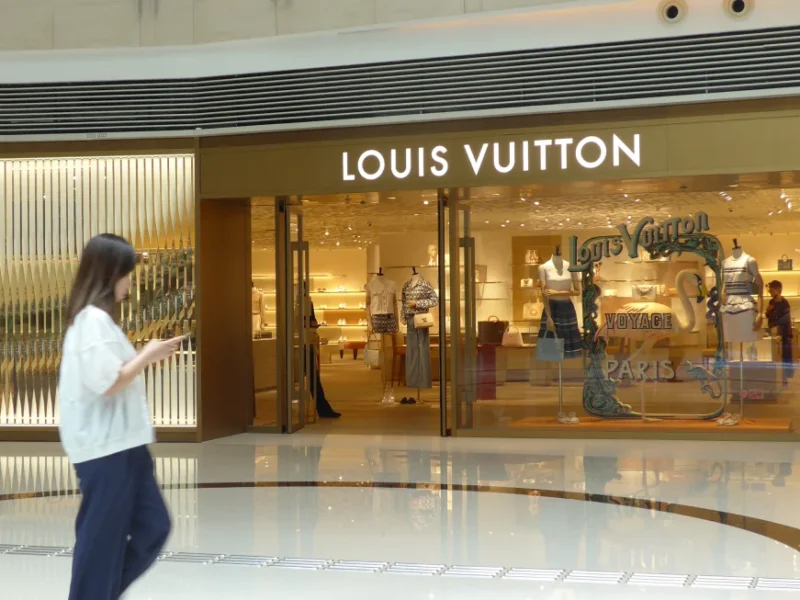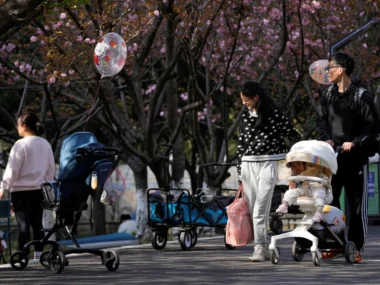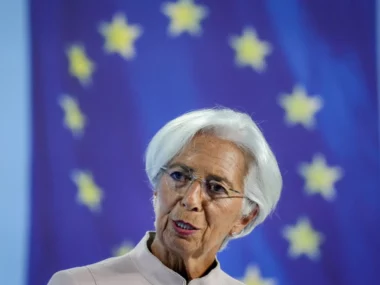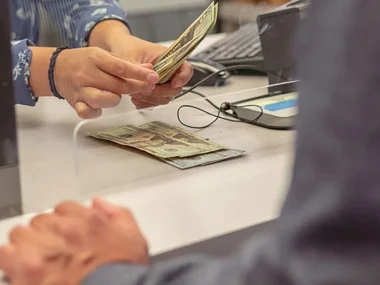For Zheng Jiewen, a 23-year-old working at an advertising agency in Guangzhou, China’s economic slowdown feels very real. Primarily a print model, Zheng used to earn 30,000 yuan ($4,230) a month when she started two years ago. However, as her company’s business began to decline last year, her pay was gradually reduced, culminating in a significant cut in February that left her making only half of what she previously earned.
“I was extremely shocked,” she told CNN. As a result, she immediately adjusted her spending habits to align with her reduced income, opting to no longer purchase luxury brands like Louis Vuitton, Chanel, or Prada, which were her favorites. The economic slowdown, which she described as “obvious,” has led to a surge in social media searches for affordable replicas, or “dupes,” which have tripled between 2022 and 2024, according to Laurel Gu, a director at Mintel, a market research firm based in Shanghai.
Nowadays, Zheng and her friends are directing their limited budgets towards “pingti” products—high-quality replicas of branded goods, often referred to as dupes in English. Some of these products closely mimic the originals, while others are inspired by luxury designs but offer additional colors or textures. This trend is gaining momentum as consumer confidence in China plummets, according to analysts.
Gu noted that, unlike a decade ago when Chinese consumers led the world in luxury spending and favored well-known Western brands, shoppers are now shifting towards more affordable alternatives, a trend she calls the “new mainstream.” Dupes are significantly cheaper than their branded counterparts. For example, Lululemon’s Align yoga pants sell for 750 yuan ($106) on their official Chinese website, while a search on popular platforms like Tmall offers similar leggings for as little as $5, many of which claim comparable quality.
This growing interest in dupes is affecting not only luxury brands like Louis Vuitton but also the broader retail sector. Sales at LVMH, the parent company of Louis Vuitton, fell by 10% in the first half of the year in the Asia region, excluding Japan, with China being the dominant market.
The “pingti” trend is contributing to weak consumption and retail performance, with sales falling short of already low expectations last month. Economic data throughout the summer has been disappointing, raising concerns that China may miss its 5% growth target announced in March.
In response, China’s central bank introduced new measures on Tuesday to stimulate growth by cutting its main interest rate and reducing the cash reserve ratio for banks, which is intended to free up more money for lending.
Careful shoppers
Economists at Nomura reported in a research note on September 4 that consumer confidence in China is still struggling to recover, even a year and a half after the country reopened its borders post-COVID-19. According to their findings, the consumer confidence index fell to 86.0 in July, down slightly from 86.2 in June. This level is only marginally above the record low of 85.5 from November 2022, when the country was still grappling with pandemic-related challenges. (The index uses a scale from zero to 200, where 100 represents a neutral position.) Consumers are hesitant to spend due to factors like declining stock prices, capital outflows, and sluggish wage growth, the economists noted. In fact, based on CNN’s conversations with consumers across China, merely maintaining one’s current salary is seen as a success.
Xinxin, an elementary math teacher from Chongqing, southwest China, told CNN she was once a loyal user of Estée Lauder’s Advanced Night Repair serum. However, after enduring a sharp pay cut of over 20% this year, which she blamed on “fiscal challenges” in her school district due to economic difficulties, she switched to a more affordable alternative. She found a product with the same main ingredients at a steep discount, costing only around 100 yuan (approximately $14) for 20 milliliters, compared to Estée Lauder’s 720 yuan ($100) for 30 milliliters.
“Why switch to a dupe? Pay cut, of course!” she humorously remarked.
Both Xinxin and Zheng, a model, feel fortunate to be employed. China revealed on Friday that the unemployment rate for people aged 18 to 24, excluding students, climbed to 18.8% in August, the highest level recorded since the metric was reintroduced in January. The country had paused releasing this figure for several months after consecutive record highs were reached last summer.
A sharp decline
On Tuesday, central bank governor Pan Gonsheng aimed to alleviate widespread concerns about slowing growth by announcing reductions to a key lending rate, the seven-day reverse repo rate, decreasing it from 1.7% to 1.5%. Additionally, the reserve requirement ratio for banks was cut by half a percentage point, which is expected to release approximately one trillion yuan ($142 billion) for new loans. He also disclosed reductions to existing mortgages and lowered the minimum down payment for second-time homebuyers from 25% to 15% to bolster the struggling property sector, which many economists believe is at the core of China’s various economic challenges.
The real estate market once represented as much as 30% of the economy. However, it began to slow down in 2019 and entered a severe downturn about two years later, following a government-led crackdown on developers’ borrowing.
This crisis has led to a sharp decline in real estate prices and a loss of consumer confidence. Both individuals and businesses are attempting to protect their wealth by selling assets and reducing spending and investment.
According to Nomura, citing research from Beike—a platform that monitors housing transactions—prices of existing homes have dropped nearly 30% since 2021 across a sample of 25 major cities.
Barclays economists noted in a September 12 research report that “unlike the significant positive wealth effect observed in the US after COVID, Chinese households have experienced a substantial loss of wealth due to the housing downturn, estimated at around $18 trillion.”

Escalators are visible at a deserted Evergrande commercial complex in Beijing on January 29. On the same day, a Hong Kong court mandated the liquidation of the Chinese real estate giant.
To provide context, economists noted that it’s as if each three-person household in China has lost approximately $60,000, a figure nearly five times the country’s per capita gross domestic product.
Nicole Hal, a 33-year-old self-employed businesswoman from Guangzhou, shared with CNN that her lack of faith in the national economy has forced her to cut back on spending, despite anticipating a combined income of at least four million yuan ($570,000) this year with her husband.
“I’ve stopped purchasing luxury items and high-end skincare products, as well as expensive clothing. I’ve also cut back on dining out, opting to cook at home at least four days a week,” she explained.
This “vicious cycle” of diminished spending has contributed to a range of negative economic indicators, leading several investment banks to revise their growth forecasts for China below the official target of 5%.
In an effort to address the economic shortfall linked to the property sector, Chinese leaders have primarily focused on boosting manufacturing, particularly in the electric vehicles (EV) industry. However, their approach of exporting excess capacity to international markets has faced backlash, especially from EV manufacturers in Europe.
Goldman Sachs economists stated in a September 13 report that “in China, weak domestic demand coupled with strong manufacturing growth has resulted in an exceptionally high goods trade surplus.” They cautioned that Beijing could encounter additional tariffs from trade partners if it persists in exporting its surplus.










